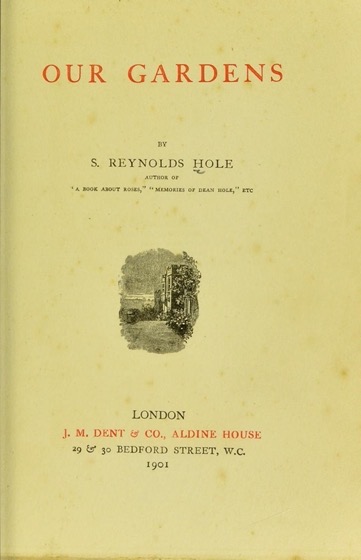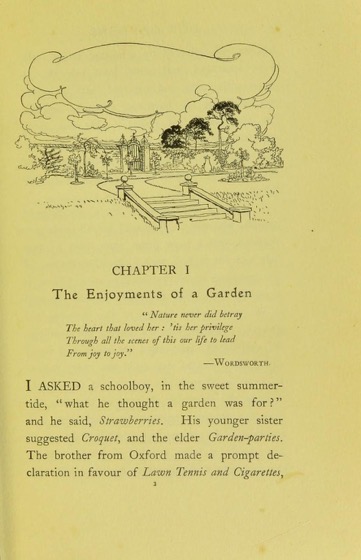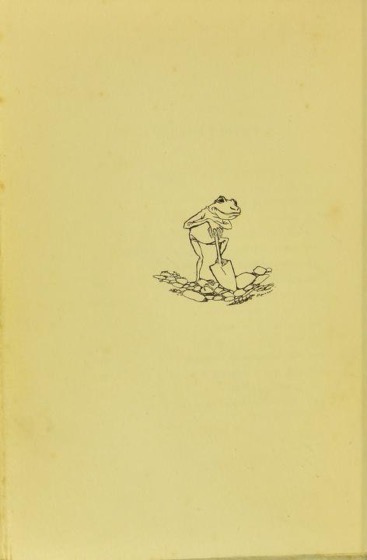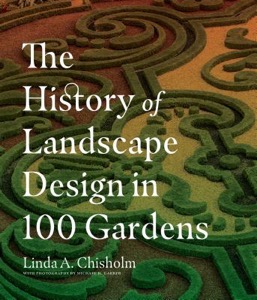Historical Garden Books – 138 in a series – Our gardens (1901) by Samuel Reynolds Hole
Download in Text, PDF, Single Page JPG, TORRENT from Archive.org
I ASKED a schoolboy, in the sweet summertide, “what he thought a garden was for?” and he said, Strawberries. His younger sister suggested Croquet, and the eider Garden-parties The brother from Oxford made a prompt declaration ,n favour of Lawn Tennis and Cigarettes, but he was rebuked by a solemn senior, who wore spectacles, and more back hair than is usual with males, and was told that “a garden was designed for botanical research, and for the classification of plants.” He was about to demonstrate the differences between the Acotyand the Monocoty-ledonous divisions, when the collegian remembered an engagement elsewhere.
I repeated my question to a middle-aged nymph, who wore a feathered hat of noble proportions over a loose green tunic with a silver belt, and she replied, with a rapturous disdain of the ignorance which presumed to ask — “What is a garden for? For the soul, sir, for the soul of the poet ! For visions of the invisible, for grasping the intangible, for hearing the inaudible, for exaltations” (she raised her hands, and stood tiptoe, like jocund day upon the misty mountain top, as though she would soar into space) “above the miserable dulness of common life into the splendid regions of imagination and romance.” I ventured to suggest that she would have to do a large amount of soaring before she met with anything more beautiful than the flowers, or sweeter than the nightingale’s note ; but the flighty one still wished to fly.
A capacious gentleman informed me that nothing in horticulture touched him so sensibly as green peas and new potatoes, and he spoke with so much cheerful candour that I could not be angry ; but my indignation was roused by a morose millionaire, when he declared that of all his expenses he grudged most the outlay on his confounded garden.
Dejected, I sought solace from certain ladies and gentlemen, who had expressed in my hearing their devoted love of flowers. They were but miserable comforters. Their devotion was superficial, their homage conventional : there was no heart in their worship. I met with many who held flowers in high estimation, not for their own sake, not for the loveliness and perfect beauty of their colour, their fragrance, and their form, not because even Solomon in all his glory was not arrayed like one of these, but because they were the most effective decorations of their window-sills, apartments, and tables, and the most becoming embellishments for their own personal display. I found gentle-men who restricted their enthusiasm to one class of plants, ignoring all the rest ; and even in this their valuation was regulated by the rarity and the cost of the flower. “ I can assure you, my dear sir,” they said, “ that there is only one other specimen in the country, and that the happy possessor is my friend, Lord Lombard.” And I shall never forget the disastrous results which followed, when I informed one of these would-be monopolists, that I knew a third party, who had duplicates. He favoured me with a scowl of mingled disgust and doubt, sulked during the remainder of our interview, and became my bitter enemy for life.
“Such men as he are never at heart’s ease, While they behold a greater than themselves.”
Others were quite as exclusive, but with a difference of intention. They not only desired to possess, but that the public should know that they possessed, something out of the common ; and from their love of renown, or their “ sacra auri fames ‘ ’ they competed for the prizes which were awarded to their favourite flower. It seemed to me that they derived much more gratification from the cups and stakes than from the horses, who had won the race.
The unkindest cut of all, so common that it makes one callous, comes from those visitors who “ would be so delighted to see our garden ! ” and they come and see, and forget to be delighted. They admire the old city walls which surround it, they like to hear the cawing of the rooks, they are pleased with the sun-dial and the garden-chairs, but as for horticulture they might as well be in Piccadilly ! They would be more attracted by the fruit in Solomon’s shop than by all the flowers in the border.
- Publication date 1901
- Topics Gardens, Floriculture
- Publisher London : J.M. Dent & Co., Aldine House
- Collection leedsuniversitylibrary; ukmhl; medicalheritagelibrary; europeanlibraries
- Digitizing sponsor Jisc and Wellcome Library
- Contributor University of Leeds Library
- Language English
Find more books on Bookshop and Help Indie Book Stores!
* A portion of each sale from Amazon.com directly supports our blogs
** Many of these books may be available from your local library. Check it out!




